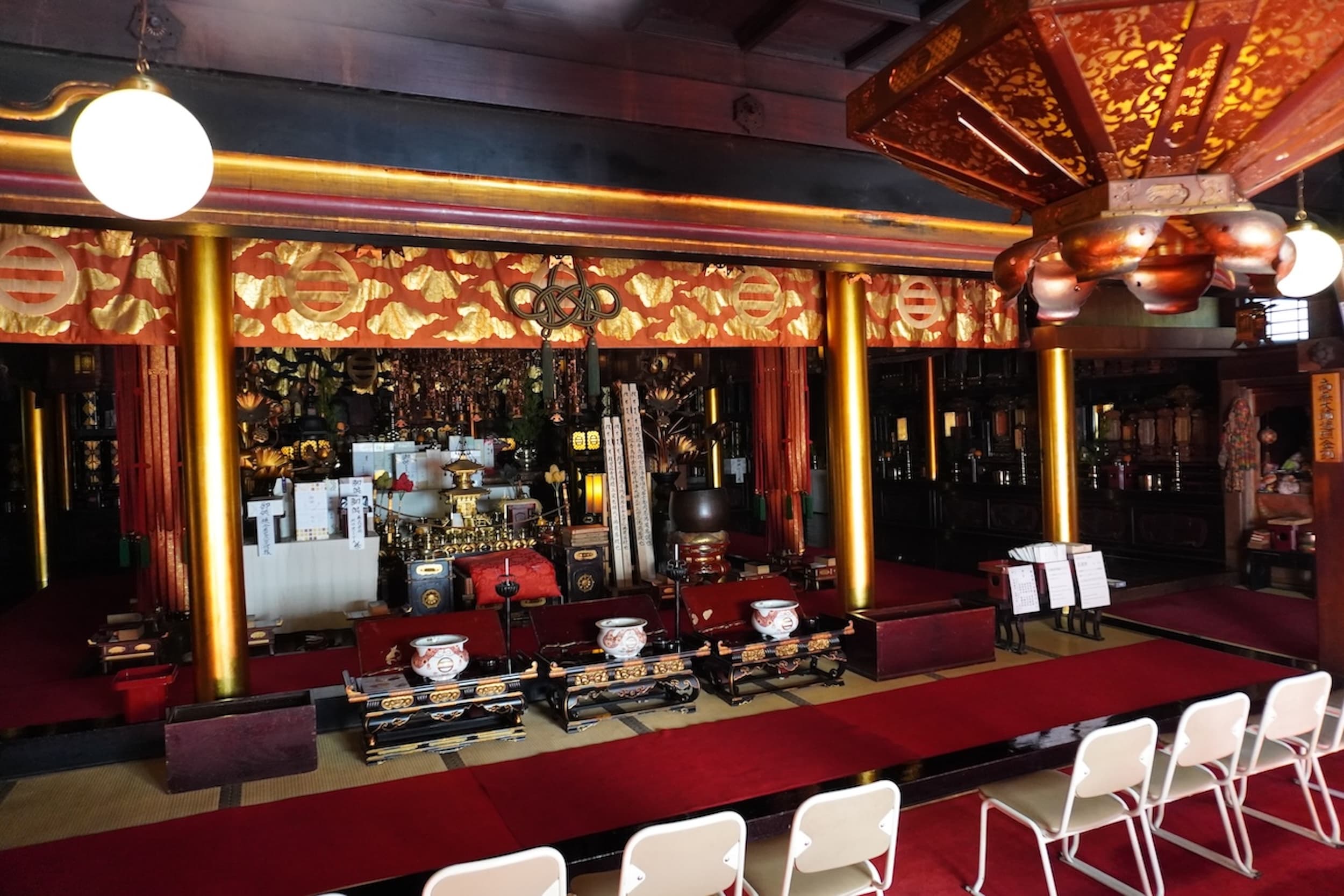The Awe-Inspiring Daihannya Sutra Recitation Ceremony

[Blessings] Daihannya Sutra Recitation Ceremony
Multiple monks chant parts of the sutra in powerful, resounding voices, each reciting “Daihannya…” while flipping through the scripture in the air.
This time, we introduce the [Blessings] content available for viewing on the meditation app GASSHO, featuring the Daihannya Sutra Recitation Ceremony. The sight of the sutras floating in the air is breathtaking and awe-inspiring.
What kind of spiritual merits and teachings are conveyed in the Daihannya Sutra? We will also explain in detail the meaning of ten-doku (ceremonial recitation).
What is the Daihannya Sutra?
The Daihannya Sutra is formally known as the Daihannya Haramitta Sutra (大般若波羅蜜多経). The word “prajñā” (般若) is a transliteration of the Sanskrit term prajñā and the Pali term paññā, meaning wisdom.
The term “pāramitā” (波羅蜜多) is a transliteration of the Sanskrit word pāramitā, which means perfection or completeness.
This sacred sutra was brought from India to China by Xuanzang (玄奘三蔵) of the Tang Dynasty, the monk who served as the inspiration for the character Tripitaka in Journey to the West. He devoted 17 years to his journey, risking his life to bring these scriptures back. It is said that the sutras he carried weighed as much as 22 horses’ worth of scrolls. Xuanzang then spent another four years translating them into Chinese. The full text consists of 600 volumes with approximately 5 million characters, making it one of the largest Buddhist scriptures.
Simply reading or looking at the Daihannya Sutra is believed to bring spiritual blessings.
The Six Pāramitās (Six Perfections)
The Daihannya Sutra teaches the Six Pāramitās, which are six virtuous practices:
・Dāna (布施, fuse) – Kindness and generosity
・Śīla (持戒, jikai) – Integrity and keeping promises
・Kṣānti (忍辱, nin’niku) – Patience and endurance
・Vīrya (精進, shōjin) – Effort and diligence
・Dhyāna (禅定, zenjō) – Self-reflection and meditation
・Prajñā (智慧, chie) – Wisdom and self-cultivation
A unique feature of the Six Pāramitās is that practicing even one of them earnestly is considered equivalent to practicing them all. Among them, dāna (generosity) is said to bring the greatest merit.
The Concept of “Emptiness” (Śūnyatā)
The Daihannya Sutra also teaches the concept of “emptiness” (空, kū)—the idea that all things are devoid of inherent existence.
According to this teaching, nothing is permanent, and all things are in a constant state of change. Even suffering and worldly attachments are considered empty, meaning they have no fixed or unchanging nature. By understanding this, one can free oneself from attachment, let go of prejudices, and live with an open and flexible mind.
What is Tendoku?
Tendoku refers to the practice of reading only the most important parts of a sutra, rather than reading the entire text word for word (a practice called shindoku, or full recitation without omission). The term tendoku also originates from the fact that sutras were traditionally written on scrolls, which were “rolled” while being read.
According to the Nihon Shoki (Chronicles of Japan), the practice of tendoku has been performed in Japan since the Nara period at temples such as Tōdai-ji and Yakushi-ji.
Normally, sutras are meant to be recited aloud, but reading all 600 volumes of the Daihannya Sutra in full would take an enormous amount of time. Instead, monks chant the title of the sutra and a few lines while flipping through the pages, symbolizing the reading of the entire text.
Now, let’s take a look at a part of the Daihannya Sutra Tendoku Ceremony.
What is being chanted?
In a powerful and resonant voice, the monks chant the following words each time they complete the reading of one volume:
“Daihannya Haramitta Kyō Kan Dai” (Volume of the Daihannya Sutra) “First Volume to Six Hundredth Volume, Translated by Tang Dynasty Tripitaka Master Xuanzang by Imperial Decree.”
It is also believed that those who feel the breeze created by the fluttering pages of the sutra will be blessed with good health and protection from illness.
Why do they strike the sutra?
Those witnessing the Daihannya Sutra Tendoku Ceremony for the first time may be surprised to see monks striking the sutra against the scripture table at the end of each volume.
This striking action, performed with a loud pan! sound, carries the meaning of josai yoraku—a prayer to dispel misfortune and bring happiness. Through this ritual, the monks pray for the removal of all calamities and evil, while also wishing for people’s desires to be fulfilled and for happiness to be granted.
Summary
In this article, we introduced the Daihannya Sutra Tendoku Ceremony, which can be viewed as part of the Blessings content on the meditation app GASSHO. The sight of monks chanting “Daihannya…” in powerful voices while flipping through the sutras is both breathtaking and mesmerizing, making it impossible to look away.
The Daihannya Sutra, which Xuanzang carried from India to China over the course of 17 years and then spent another four years translating into Chinese, is said to bring blessings simply by being read.
Attending a Daihannya Sutra Tendoku Ceremony in person would be a wonderful opportunity to experience its spiritual benefits up close.
Thank you for reading until the end.



